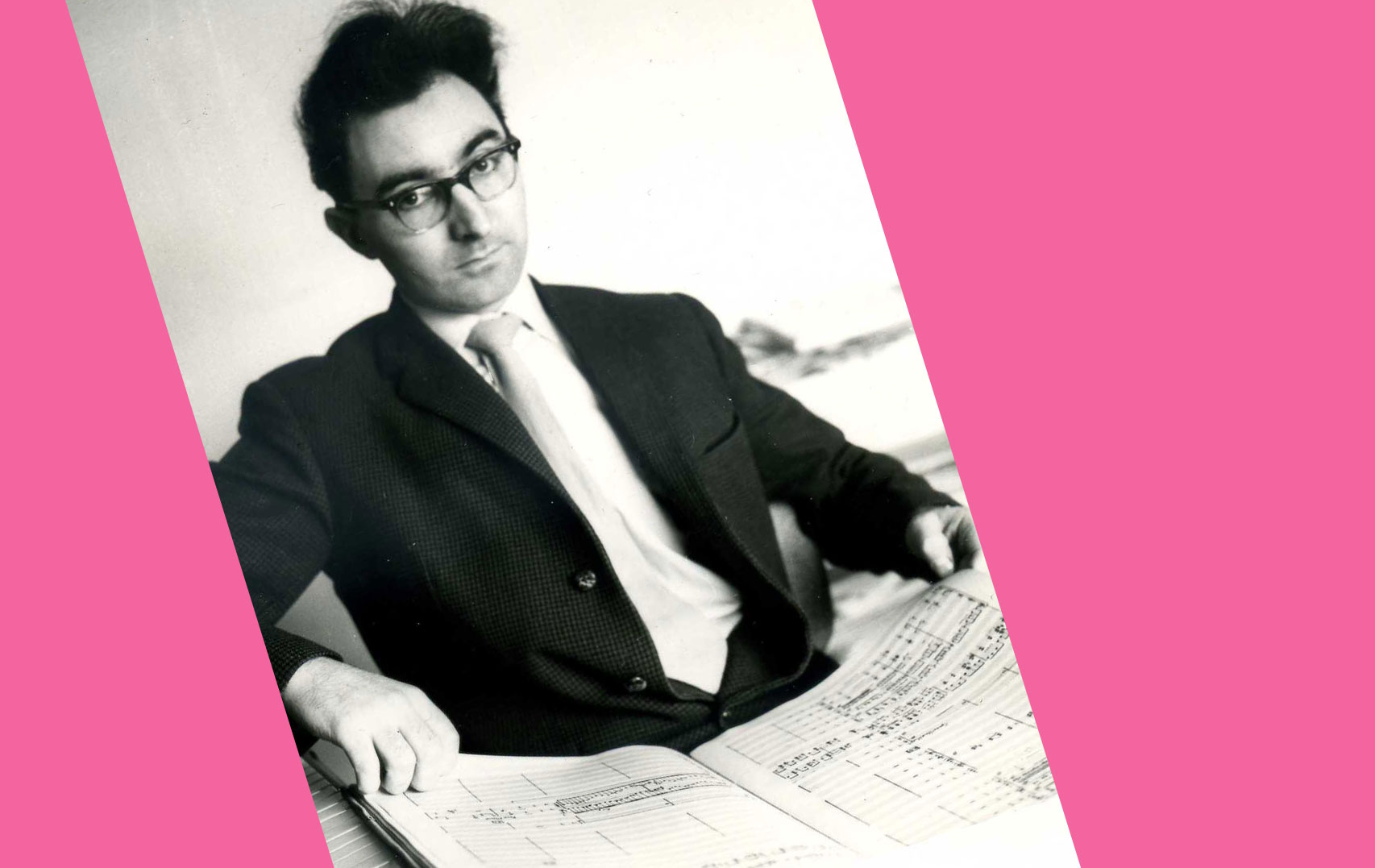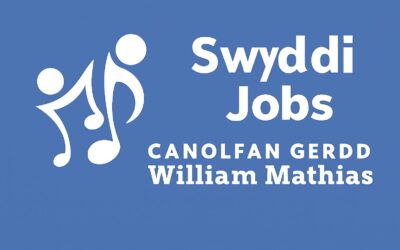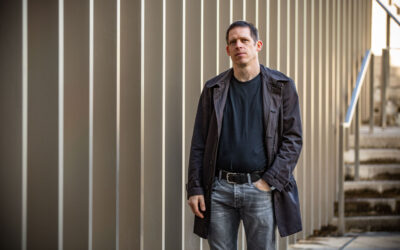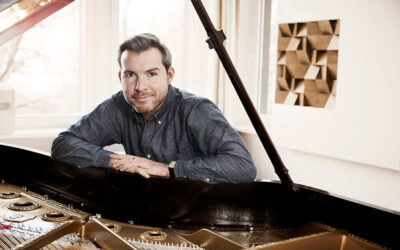The work of one of Wales’s greatest composers will be celebrated at a concert to mark the 90th anniversary of his birth.
Professor William Mathias, who died aged 57 in 1992, won global acclaim during his lifetime and tribute will be paid to his musical legacy at the concert at Bangor University’s Neuadd Prichard Jones at 7.30pm on Saturday, November 2.
It’s a joint initiative between the School of Music at Bangor University, where he taught for 18 years, and Canolfan Gerdd William Mathias (William Mathias Music Centre) and the Gwynedd and Anglesey Schools Music Service.
Prof Mathias, who was born in Whitland in Carmarthenshire, was a child prodigy who started playing the piano at three and was composing music by the age of five.
In 1981 he famously wrote the anthem, ‘Let the people praise thee, O God’, for the royal wedding of the then Prince Charles and Princess Diana which had a worldwide television audience of one billion people.
His lasting contribution also includes the North Wales International Music Festival which he founded in 1972 and is now one of the highlights in the UK’s cultural calendar.
The concert, that’s being supported by Tŷ Cerdd, will be an emotional occasion for his daughter, Dr Rhiannon Mathias, who is a musicologist, talented flautist and flute tutor at Canolfan Gerdd William Mathias.
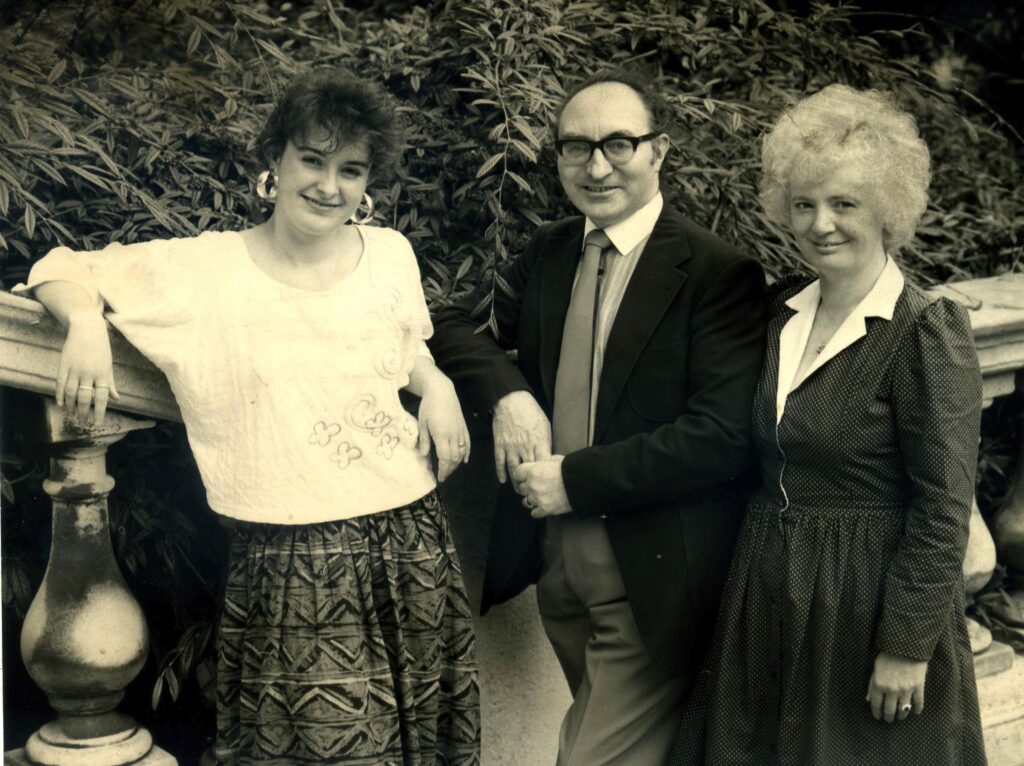
She said: “The idea of the concert came from the community and I think it is a marvellous way to mark what would have been his 90th birthday.
“The Prichard Jones Hall is a wonderful place to stage the concert as it was his place of work for many years and so many of his pieces have been played there.
“Many, many people will remember him being there for concerts and seeing him walk through. I can’t wait for the concert,” she said.
Rhiannon was invited to take part in the concert but thought it best to give her students the opportunity.
“Two of my students gained their performance diplomas this summer. To achieve this qualification they had to present a 30-minute recital and both chose one of my father’s pieces, the sonatina for flute and piano.”
Wyn Thomas, chair of Canolfan Gerdd William Mathias, said the first half of the concert will feature solo pieces for organ, flute, harp and piano and choral works.
Among the solo artists taking part are harpist Angharad Wyn Jones, organist Elis Massarelli-Hughes, pianist Teleri Siân and flautists Gwenno Wyn and Christina Hutchinson-Rogers.
Choral items will be performed by Côr Dre from Caernarfon directed by Sian Wheway.
The climax of the evening will be a performance of Culhwch ac Olwen – a work for a choir and an instrumental ensemble and is based on a famous love story from the Mabinogion, the earliest Welsh prose stories from the 12th and 13th centuries.
“The aim of the occasion at the Prichard Jones Hall is to identify William Mathias’ special contribution to Welsh music. November 1st would be Mathias’ 90th birthday and so the event is timely,” said Mr Thomas.
Tudur Eames, director of the Gwynedd and Anglesey Schools Music Service, who will conduct the work in the concert, said William Mathias referred to Culhwch ac Olwen as an ‘entertainment’.
“It’s not an opera, a cantata or an oratorio but a combination of several musical elements that illustrate the legend including a storyteller, instruments, accompaniment of two pianos and children’s voices,” he said.
Wyn Thomas added: “He was a prolific composer and a versatile musician. He produced pieces for solo instruments, wind ensembles and , concertos but his main interest was choral/vocal music.
“Mathias built a Music Department in Bangor which was among the best in the British Isles and secured the respect and admiration of generations of future students and fellow musicians.
“Many of us are indebted to Mathias for first class musical training and as a result his former pupils are seen active in the music world here in Wales, in Britain, the United States and beyond.”
The concert at Neuadd Prichard Jones, Bangor on November 2 starts at 7.30pm. Tickets cost £12 and £10 or £5 for students and children. Further details online at www.cgwm.org.uk

